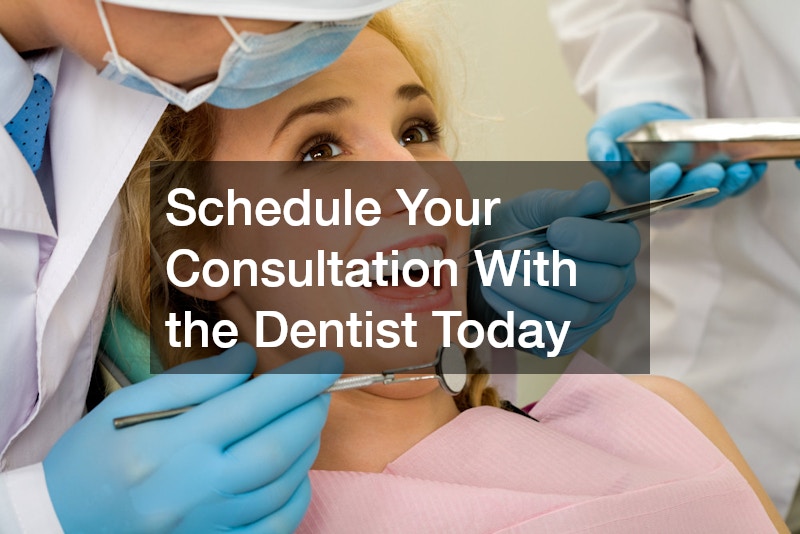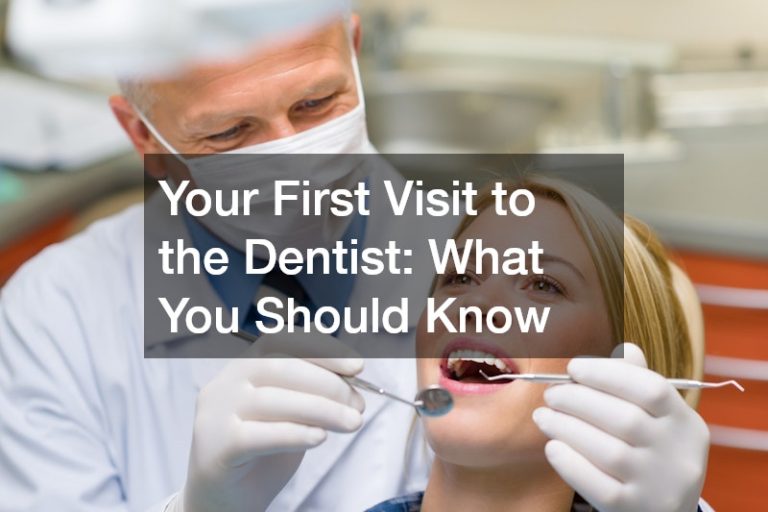
Welcome to our comprehensive guide designed to prepare you for your first visit to the dentist. We will address common concerns and offer valuable insights into what you can expect. Whether you’re a child excited about a new adventure or an adult overcoming long-held anxieties, understanding the process can make all the difference. This article demystifies the experience, ensuring that when you visit the dentist, you feel informed and empowered.
What Should I Expect During My First Visit to the Dentist?
Your initial appointment with the dentist is more than just a routine check-up—it’s the foundation for your long-term oral health journey. Here’s a breakdown of what typically unfolds.
Understanding the Initial Assessment
The visit often begins with a warm welcome from the dental team. You’ll fill out a simple form covering your personal details and any immediate concerns. The dentist will then conduct an initial assessment, chatting with you about your overall health and any specific issues, like tooth sensitivity or gum discomfort. This casual conversation helps build rapport and tailors the exam to your needs.
Diagnostic Procedures and Their Importance
Next comes the diagnostic phase, where the dentist uses tools like X-rays or intraoral cameras to get a clear picture of your mouth. These procedures are crucial for spotting hidden issues, such as cavities or early signs of decay, that aren’t visible to the naked eye. By catching problems early, they prevent more serious complications down the line, saving you time, money, and discomfort.
Discussion of Dental History
The dentist will review your dental history, asking about past treatments, allergies, or medications. This step is essential because certain conditions, like diabetes or heart issues, can influence dental care. Be honest—sharing this information ensures safe, personalized recommendations that align with your health profile.
Importance of an Oral Examination
At the heart of the visit is the thorough oral examination. The dentist will gently inspect your teeth, gums, tongue, and jaw for signs of disease or wear. This hands-on check is vital for assessing everything from plaque buildup to potential oral cancer risks. It’s quick, non-invasive, and sets the baseline for your future dental health.
Duration of the First Visit
Most first visits last between 45 minutes to an hour, depending on the complexity of your needs. If additional diagnostics are required, it might extend slightly, but the team will keep you updated. Arrive a bit early to handle paperwork, and remember: it’s all about getting you on the path to a healthier smile.
How Do I Prepare for My First Dental Appointment?
Preparation is key to a smooth experience. A little planning goes a long way in reducing stress and maximizing the visit’s value.
Scheduling a Convenient Appointment
Choose a time that fits your schedule—perhaps a morning slot when you’re fresh and less rushed. Call the dentist’s office to book and ask about their availability for new patients. Many practices offer flexible hours, including evenings or weekends, to accommodate busy lives.
Gathering Necessary Medical Records
Compile any relevant records, such as recent medical check-ups or dental histories from previous providers. If you have allergies or ongoing treatments, jot them down. Having this info ready helps the dentist dive right into your care without delays.
Dietary and Hygiene Preparations
On the day of your appointment, opt for a light breakfast or meal—avoid heavy, sugary foods that could leave residue. Brush and floss thoroughly beforehand to start with a clean slate. This not only makes the exam easier but also shows your commitment to oral health.
Questions to Ask Your Dentist
Come armed with questions! Inquire about recommended brushing techniques, fluoride options, or signs of trouble to watch for. Examples include: “How often should I schedule cleanings?” or “What’s the best way to whiten my teeth safely?” Your dentist is there to educate and guide you.
Insurance and Payment Considerations
Contact your insurance provider ahead of time to understand coverage for new patient visits. Most plans cover preventive care like exams and X-rays. Discuss payment options with the office—they often accept various methods and can help navigate any out-of-pocket costs.
What Should I Do After My First Dental Visit?
The real work begins once you leave the chair. Follow these steps to build on your positive start.
Understanding Your Dental Report
Review the summary provided by your dentist, which outlines findings and any recommendations. If something’s unclear, don’t hesitate to call for clarification. This report is your roadmap to proactive care.
Establishing a Follow-up Routine
Based on the exam, your dentist will suggest a return schedule—typically every six months for cleanings. Stick to it religiously; consistency prevents small issues from escalating.
Maintaining Oral Hygiene at Home
Incorporate daily habits like brushing twice a day for two minutes, flossing nightly, and using an alcohol-free mouthwash. Your dentist might recommend specific tools, such as an electric toothbrush, to elevate your routine.
Scheduling Future Appointments
Mark your calendar for the next visit right away. Many offices send reminders via text or email, making it effortless to stay on track.
Correcting Unhealthy Dental Habits
Reflect on habits like nail-biting or sipping sugary drinks throughout the day. Your dentist’s insights can help you swap them for healthier alternatives, fostering lasting change.
Your first visit to the dentist is a vital step towards maintaining oral health. Armed with this knowledge, you can approach your appointment with confidence and ease, setting the stage for a lifetime of healthy smiles. Remember, a great dentist isn’t just a professional—they’re your partner in achieving that radiant, confident grin.

